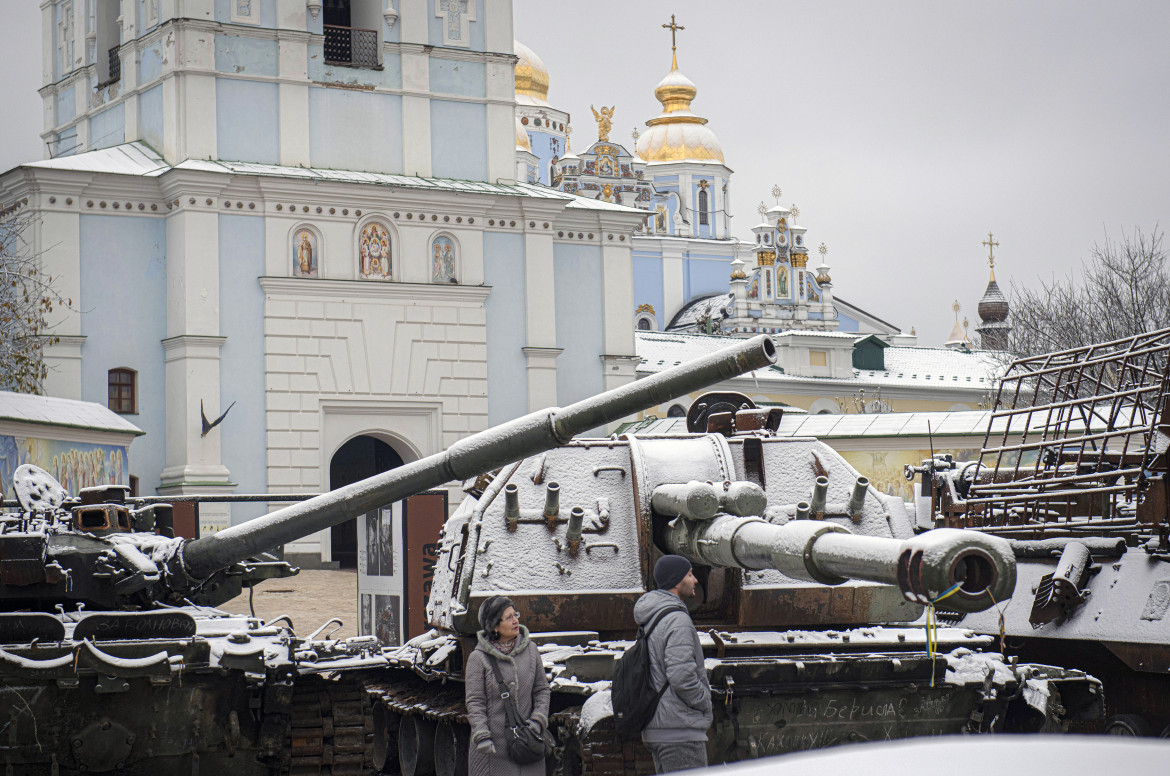Analysis
Russia is bombing Ukrainian energy infrastructure to maximize civilian suffering this winter
Moscow's goal is to make them live like rats in the dark and cold while sirens are sounding and missiles whooshing by outside. This is the logic of war, where the notion that the end justifies the means is taken to its ultimate conclusions and leads to the most tragic outcomes.

While Russian troops may not be able to make any advance in the coming months, Ukrainian civilians will have to endure the cold. Everyone is well aware of this, especially the media who continue to publish images of Kiev starting to be draped in white under the first snowflakes. In the ninth month of the war, that sight is anything but idyllic.
In Ukraine, winter lows fall below -15°C and, more rarely, reach -20°C. In a basement shelter without power, gas or hot water, such a situation soon becomes unlivable. It would be naive and disingenuous to pretend that the Russian army leadership hasn’t banked on this, and that the bombings of Ukrainian energy infrastructure carried out over the past month are just a military “change of strategy.” On the contrary, it is quite clear that the war approach decided by the recently appointed commander of Moscow’s forces in Ukraine, Sergei Surovikin, aims to sap the resilience of civilians sheltering in the bunkers by forcing them to give up the most obvious comforts of daily life: the goal is to make them live like rats in the dark and cold while sirens are sounding and missiles whooshing by outside.
This is leading to understandable rage from those who are accusing the Russians of failing to defeat the enemy on the battlefield and thus turning to underhanded tactics. Unfortunately, this misses the fact that all of this falls within the logic of war, where the notion that the end justifies the means is taken to its ultimate conclusions and leads to the most tragic outcomes. So, while it is normal for Ukrainian officials to rail against the Russians – as, for example, the head of the presidential office, Andriy Yermak, who wrote on Twitter that the bombings were “naive tactics of cowardly losers” – it is not equally obvious that suffering martyrdom should be the core of the defense strategy. This doesn’t mean pushing the Ukrainians to surrender, but putting an obstacle between the invaders’ thirst for conquest and their targets and at the same time urging the defenders to the negotiating table from a non-subservient position.
The West could accomplish this – not because of war fatigue, or because the war is becoming too costly, or because the goal of weakening Moscow has already been achieved (reasons that have been brought up in various international venues by a wide array of figures), but because it doesn’t make sense to wait for the Ukrainian and Russian armies to exhaust themselves and decimate each other until they reach an immovable stalemate, as U.S. Chairman of the Joint Chiefs of Staff Mark Milley predicts; the head of the U.S. generals is being less of a war hawk than his own country’s politicians. We must always remember that in the middle of the clash lies the fate of millions of people.
On Thursday, many welcomed the extension of the grain agreement allowing exports from Ukrainian ports for another 120 days. The UN described it as vital news for all those peoples suffering from the severe food crisis caused by the war. However, in large parts of the Donbass, food has been arriving only on humanitarian aid trucks for months. Since May, there has been a shortage of gas, then water and finally electricity.
Now that it’s no longer possible to live outdoors and snow will start after the rains end, who will have the task of explaining to the people there that they are part of the “proud resistance of the Ukrainian people”? And will the civilians of Kiev, Odessa or Dnipro (all of which were hit again on Thursday) be able to adapt as their compatriots have done in recent months?
In some parts of the east, the war has been ongoing since 2014, albeit intermittently and with much less intensity. Nonetheless, habitual suffering doesn’t necessarily make one immune to it, and perhaps it’s been too often that this war has been spoken of as something abstract, as well as confined to particular limited regions. That’s not how Surovikin sees it. He is taking the war to every home, aiming to cause suffering to millions more Ukrainians.
Tuesday’s attacks are proof of this strategy, conducted with more than 100 missiles and directed mainly at the primary hubs of the power grid, energy production centers as well as transformers coming out of nuclear power plants. According to Ukrainian Energy Minister Herman Halushchenko, it was the “most massive shelling” of Ukraine’s energy infrastructure “since the beginning of the war.”
As the world was focused on the incident on the Polish border and some were nurturing morbid fantasies about World War III, 10 million people were left in the dark for several hours. Although the situation has since improved, over the long term, planned blackouts will become more frequent and the electricity supply to eastern areas will be more and more difficult to restore. In Donbass, a gas production site was also reportedly hit, according to the head of the state energy company Naftogaz, Oleksiy Chernishov.
Overall, about 40% of the country’s energy infrastructure is out of commission.
Originally published at https://ilmanifesto.it/kiev-nevica-in-piazza-maidan-arriva-il-generale-piu-crudele on 2022-11-18
